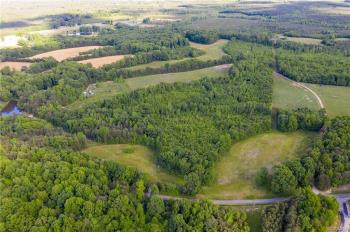Peyton Townes and Muriel Pearce Family History
Townes
See also: Townes History Letter and 1853 Townes Family History There are histories written by members of the family in the 19th and early 20th Centuries with details about the earlier generations.

Direct Townes Line
First the easy part. The Townes ancestry of Peyton, William A,. Halle, and Francis Gwynn Townes can be traced several generations in a direct line from his fathers and grandfathers with the same last name. (See chart on right.)
William and John Townes are the first recorded Townes great grandfathers in the 1700s. There is a will that names Armistead Terrell Townes as one of John's sons, and William is also recorded as John's father. The large family of offspring and descendants of John and Armistead Townes are also clearly documented -- including those who remained in Virginia and those who migrated to the west and south.
However pinning down more information about the first generations is more difficult because of a tendency of the Townes family to name their sons William and John. There are records about Williams, and Johns in different branches as the original family proliferated, but it is not always clear which were which.
As a result, their specific ancestors, and when they emigrated from England can not be pinned down precisely. Here is the background based on what is available.
Early Roots and Migration
The surname Townes is of Anglo-Saxon origin. It is derived from the Old English "tun," which originally meant "fence" or "enclosure around a house or "town. It referred to "one who lived in or at the village or town."
There are variations of spellings, including Townes, Town and Towne. The first recorded mention of the family name in England was Wistric Optun in 1095, in "The Feudal Documents" from the Abbey of Bury St. Edmunds, Suffolk. Later examples from the city of London include those of Richard Towne, christened at St. Leonards church, Eastcheap, in 1544, and John Towen christened at St Mary Magdalen, in 1607.
There were two basic migrations of this general family to North America. One branch settled primarily in New England, and most commonly spell their names Town, Towne, or Towns. They are often referred to as the descendants of William Towne from Great Yarmouth, England and his wife Joanna Blessing, who emigrated to Salem, Massachusetts in 1635. He was the son of John Towne and Elizabeth Clarke.
The southern American branch, usually spelled Townes (or Towns in some early records), came to Virginia and the Carolinas beginning in the 1600’s. They are likely connected to the northern branch, but direct links are not available. There have been numerous Townes in Virginia's history since then. In the 19th Century members of the Townes family also migrated from Virginia to other southern states, including Mississippi, Alabama and Texas.
As for Peyton's direct ancestral line, earlier family histories trace the Townes ancestry to great grandfather William Townes who emigrated from England with a brother John in the late 1600's or early 1700's. He married Rebecca Clarke and lived in New Kent, Va. They had children including John, William, James, Richard, Judith and Rebecca.
Certain southern Townes branches trace their origins to a family headed by James Townes and Ann Pride who emigrated to Virginia in the 1600's and early 1700's. Their offspring included a John, Willliam, Thomas, Henry, and Samuel.
Peyton's line may have been also connected to this family through another route but that is inconclusive. (See chart on James Townes page.)
(In 2021-22, a group of Townes descendants on the website Wikitree have been trying to decipher the early Townes maze.)

William Townes (c.1711-Unknown)
According to information available, William Townes and Rebecca Clarke lived in New Kent County on the York River in Virginia between Richmond and the Tidewater section of southeast Virginia. Aside from the fact that Rebecca was a "red head," early family histories do not give any details of who she was.
Based on the fact that his son John and John's brother married two sisters in the Allen family of the Blissland Parish section of New Kent, they probably lived near Ware Creek and Cowpen Swamp by the York River.
William acquired several tracts of land iin Amelia County, about 50 miles to the west. It's possible he and Rebecca moved to Amelia, and there is a William Townes who owned a plantation there (although that may have been a different William). In either case, his son John and other offspring did move there, and Amelia County became the next focal point of the family.


John Townes (1733-1805)
John Townes was born in New Kent and later moved to Amelia County. He was likely a tobacco planter and businessman. He and his wife Martha Allen had numerous children, which formed the basis of a large extended family of descendants. Their children included Armistead Terrell Townes (Peyton's Great Grandfather) and Allen, John Jr., James, Rebecca Clarke, and Priscilla Allen Townes.
In the 1700's, Amelia County was a comparatively remote rural region whose landscape, population and attitudes were a combination of rough-hewn backcountry and plantations. While it had a frontier mentality, it also included a "gentry" who tried to emulate the lives of the English upper classes. It's not known where John Townes fit into that, but he was at least in the planter and merchant class.
In both New Kent and Amelia counties, John Townes appears to have been a prominent member of the community who was active in local civic affairs. While in New Kent he was a member of the Vestry of Blisiland Parish Church.
In Amelia County John and the Townes family were also prominent. They were tobacco planters. A number of Townes were also either attorneys or other public officials, including Armistead who was a Sheriff and James, who was Clerk of the Court. John, William and other Townes appears in court records in business matters, land transactions, road-building orders etc., However, again, it's difficult to pin down which was which because there were several John and William Townes around at that time.
Martha Allen came from a prominent family in New Kent. Her parents were most likely Richard Allen and Elizabeth Terrell, based on a family Bible record. This is also indicated by the use of Allen and Terrell names in John and Martha's offspring and descendants.
Martha was described in one family history as "a superior woman" from a family that was "cultured." A writer who was a grandson of Armistead Townes noted that "Armistead always spoke of his mother with pride." One of John's brothers married one of her sisters.
(In an aside, Elizabeth Terrell was also a possible early link to Prospect Hill plantation. She was a member of the family that owned that property for most of its early history.)
In Amelia County, the ties between the Townes and Giles families were formed. Gov. William Branch Giles lived in Amelia, and he and John were contemporaries. Their connections were apparently both business and social, including matrimonial bonds.

Armistead Terrell Townes (1789 - 1855)
Peyton's great grandparents were Armistead Terrell Townes (son of John) and Elizabeth Moseley Giles. Armistead was married twice, first to Rebecca Booker. After her death in 1809 he married Elizabeth Giles, who was the mother of Adolphus Townes as well as nine other offspring.
Armistead was apparently well-respected. He was described in his obituary as a person of "integrity and a lover of truth" with a kind and genial personality who was loved and well regarded by his family, friends and community.
Elizabeth Giles Townes was one of several connections between the Townes and Giles family. Her father was a William Giles -- however he was not Gov. Giles but another person, who was likely a cousin. Elizabeth was also a cousin of Armistead as a descendent of William Townes. Her mother was Rebecca Walker Macon, whose mother was Rebecca Walker, whose mother was Judith Townes who was a daughter of William Townes and Rebecca Clarke.
Armistead served in the U.S. Military during the War of 1812. he was a planter and is mentioned in connection with an Oak Hill plantation. He was also involved in the government of Amelia County. He was a Deputy Sheriff, and he may have also been either an attorney or court clerk, as his name is listed as a representative of parties in various legal cases and actions.
Migration West: During 19th Century, a migration of the Townes family began. This was a time of economic depression in Virginia, partially because of widespread tobacco crop failures. While some members of the Townes family stayed in Virginia, others moved to the south and west, primarily to Alabama, Mississippi, Kentucky, and then to Texas.
Armistead moved with his family, his brother Allen, and other friends and relatives to Yalobusha, Mississippi between 1840 and 1850. He died there.
His brother John Townes Jr. stayed in Amelia. John Jr. was apparently was a business associate of their father, as their names appear together in various transactions in Amelia County. He also was involved in local government, including as county coroner. While he remained in Virginia, at least one of his sons, son, John Leigh Townes, moved to Alabama, where he was a minister and active in its transition from territory to statehood.
There were many close ties between the Townes and Leigh families. Although none were ancestors of Peyton Townes, a number of members of the Townes and Leigh families migrated west together. There were many inter marriages, such as brothers from one family marrying sisters from another. It also led to variations of similar names, such as John Leigh Townes, and another named John Townes Leigh -- it also led to some convoluted names such as Anne Leigh Townes Leigh.

Adolphus D. Townes (1812-1873)
Adolphus Townes, a son of Armistead, was born in Amelia County, Virginia. He was described in his obituary as "very well-known in this city (Richmond); was universally respected; a man of sterling worth and one who held in a large degree the confidence of everyone he came into contact."
He apparently migrated with his family from Virginia to Mississippi as a youth. He was the first student from Virginia at the University of Alabama. (Prior to that he was also listed as attending West Point Military Academy, although it is not known whether it was him or someone else with that unusual name.)
He subsequently returned to Virginia and moved to Richmond around 1840, where he spent the rest of his life.
He was initially a civil engineer working for a railroad. He then went into business and was a partner in an Iron Works. (That later was merged into the Tredegar Iron Works, one of the south's largest.) He also became a coal merchant.
Adolphus was connected to the Giles family from his early life. His mother was Elizabeth Giles and he married two members of the Giles family.
Frances Ann Giles Townes and Frances Gwynn Giles Townes - When Adolphus returned to Virginia, he married Frances Ann Giles, the daughter of Gov. William Branch Giles. She died childless in 1861.
After Frances Ann's death, he married her niece Frances Gwynn Giles. She was the daughter of Frances Ann's brother Capt. William Branch Giles Jr. (To add another connection in the web, Frances parents were cousins. Capt. William Giles Jr. married a cousin whose grandmother was Gov. Giles's sister, Amey Giles Moseley.)
Adolphus and Frances had three children. William Armstead Townes and Elizabeth Frances Townes Sharp survived childhood, while a third child Peyton Giles Townes died in infancy.
At one point in the mid-19th Century, Adolphus purchased Prospect Hill plantation, where Frances's sister Nancy Branch Giles Overton lived. It had been put on the market because of financial necessity. He purchased it to keep it in the family and to enable Nancy and her children to continue to live there.
During the Civil War, Adolphus served in the Confederate Army in Company F - 1st Virginia State Reserves. His duties were primarily government administration. After the war, he received a pardon from the United States government.
He died when his children were still very young. His wife Frances lived for many years after his death and never remarried.

William Armistead Townes (1870-1942)
William Townes was born in Richmond. His father Adolphus died when William was a child, and he was raised by his mother. He was an attorney who initially practiced in Richmond until 1904, when he became attorney for the Atlantic Coast Line Railroad and moved to Wilmington, North Carolina, where he spent the rest of his life.
He was described in an obituary as "a lawyer of outstanding ability and a gentleman of the old school. Of strong convictions, he was nonetheless modest and unassuming...,and courteous and affable....He unstintingly gave of his time and abilities helping those who needed help...."
William was a member of the vestry of St. James parish, and a trustee of the Wilmington Public Library. In his spare time, he was an active golfer of noted ability.
He was married twice to women from Wilmington. His first wife, Annie DeRosset died in 1916 and was the mother of William A. Townes Jr. He then married Louise Rutland, the mother of Peyton, Hallie and Francis Gwynn Townes.
While living in Wilmington, William and his family maintained their ties in Richmond, and regularly visited Prospect Hill, the former plantation in Louisa County that had been a focal point for his family while he was growing up.
After his death Louise and her children moved to Prospect Hill for a period of time. Louise later became a housemother at Virginia Technical College, and spent her latter years in Cleveland, Ohio, where her daughter Hallie lived
William Townes Sons and Daughter




William A. Townes Jr. (1916-1999)
William was the son of William Townes Sr. and his first wife Anne DeRossett, who died shortly after his birth.
A native of Wilmington, he married Ruth Parker and had a daughter. He was a civil engineer and lived in numerous locations while working on projects. He retired to Morehead City, NC.
In his later life he became very active as a founder or St. Andrew's church. He was recalled in a church publication as "a feeling, outgoing, spiritual person with a sense of purpose, and sense of history and last but not least, a sense of humor."
Peyton Giles Townes (1921-1985)
Peyton Giles Townes was born in Wilmington North Carolina. He attended the University of North Carolina, and then joined the U.S. Navy as a Lt. in World War Two. Following his discharge he joined General Electric, working as a sales engineer negotiating defense contracts with the Navy. He lived in Clearfield and Scranton, Pennsylvania, and Schenectady, N.Y. before moving to Pittsfield, Mass. in 1954 where he remained for the rest of his life.
While living in Scranton, he was struck with polio, and was told that would likely never walk again. However, through willpower and effort he did regain his mobility.
He was an enthusiastic sailor and had a strong attachment to the Navy. After World War Two, he remained in the Naval Reserves for several years. As a civilian, he became active in the Navy League, a support organization for the U.S. Navy, and held a position as head of the New England Council.
In Pittsfield, he was active in community life. He was warden of St. Stephens Church, was president of The Stanley Club, and was a member of the Country Club of Pittsfield, to name a few.
Halle Townes (1920-2008)
Halle Townes was born in Wilmington on February 29, 1920 and graduated from New Hanover High School, St. Mary's School, and Junior College in Raleigh, NC and Sophie Newcomb College in New Orleans, LA.
She studied at the Philadelphia Divinity School and served as Director of Christian Education at Christ Church in Lexington, KY and Christ Church in Nashville, TN.
In 1948, she married Catesby ap Catesby Jones of Richmond, VA. Catesby’s job with GE brought them to Cleveland, Ohio where they lived until they moved to Wilmington in 1980 when Catesby retired..
She was a docent at the Burgwin-Wright House and a member of St. James Episcopal Church, the Carolina Yacht Club, the National Society of Colonial Dames of America, and the Lucky Thirteen Club.
They had three children.
Francis Gwynn Townes (1928-2016)
Commonly known as Gwynn, he was born in Wilmington, North Carolina. He graduated from Virginia Episcopal High School, served in the US Occupational Army in Japan, and earned BA and LLB degrees from the University of Virginia.
He married Brenda Dessau and moved to Seattle, WA. Brenda was a professor at the University of Washington. Gwynn practiced law and served as Judge Pro-Tempore in King County. He assisted with voluntary desegregation on the Seattle Central Area School Council, and was active in the Democratic Party.
They had four children.